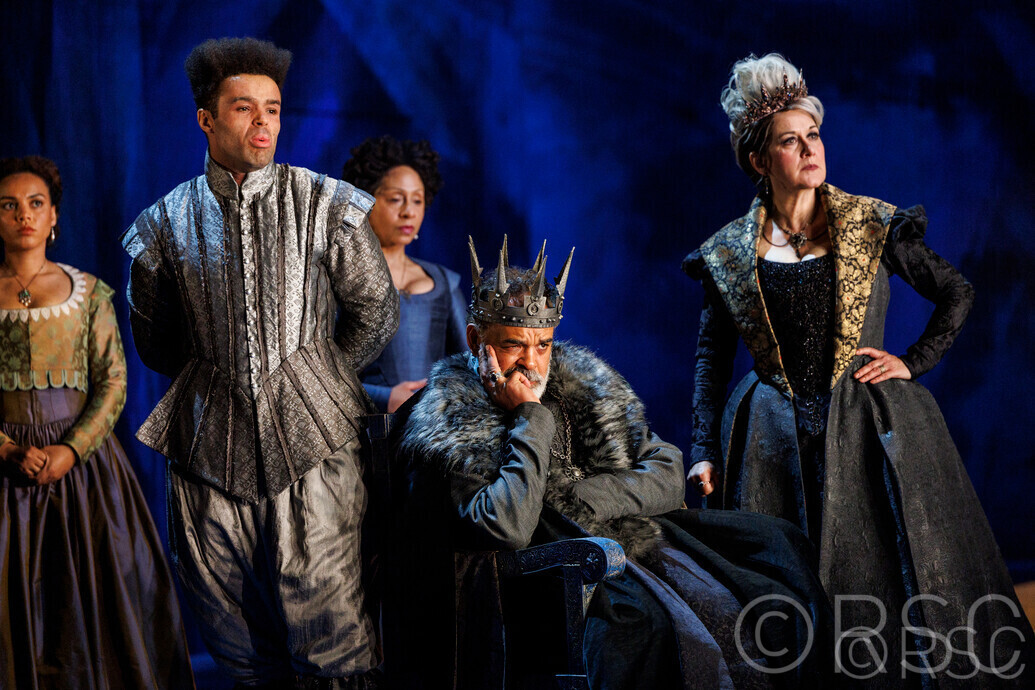
Culture Writer Hannah Dalgliesh reviews Cymbeline and finds the production to show the more lighthearted side to the play
This year marks the 400th anniversary of the publication of Shakespeare’s First Folio and to celebrate, the Royal Shakespeare Company is producing five plays which would have been lost without its publication. Following on from a daring new production of The Tempest starring Alex Kingston as Prospero and a bold re-imagining of Julius Caesar, Cymbeline is the third play in this year’s season, aptly collected under the title ‘Power shifts’.
Cymbeline: King of Britaine is a baffling but brilliant play. In the Folio it was collected as a tragedy, perhaps an obvious choice at the time given the title containing a single male protagonist. We might assume, like Hamlet or Othello, that this king is due to fall from great heights. However this is not the case. Cymbeline is a play full of hilarious mix-ups, family misfortune, and wild sub-plots, but it largely does not feature Cymbeline himself. Instead this is the tale of his daughter, Imogen, upon whose chastity a wager is placed, and so begins a tale of men plotting, whispering, avenging, and making many, many mistakes.
Cymbeline is a play full of hilarious mix-ups, family misfortune, and wild sub-plots
In the theatre itself it looks to be a great production before it has even begun. The set, unlike the previous plays of the season, is empty apart from a giant sun-like orb hanging at the back of the set. It evokes Peter Shaffer’s The Royal Hunt of the Sun, from which tragedy spills out of a central sun, a clever image. This relatively plain set is flanked by a fantastic group of musicians on either side of the stage, whose instruments are a delight to hear. Ailsa Mair, playing the cello, was the standout musician for me. This production includes, as much of Shakespeare’s best does, two fantastic songs: one utterly hilarious in the first half; the other a heart-wrenching duet over a graveside in the second. The RSC is always good at including music in its productions but this was particularly judicious.
Part one of Cymbeline flies by: it is characterised by the humour and confusion of the characters as the wager is placed and chaos ensues
As the house lights dim, doors in the set appear from nowhere, lit suddenly from behind, and the cast appear with great aplomb. Part one of Cymbeline flies by: it is characterised by the humour and confusion of the characters as the wager is placed and chaos ensues. Ed sayer is the appropriately defensive Posthumus, who has married Imogen in secret. Conor Glean’s performance as Cloten is full of humour, jealousy, anger and all the necessary ingredients to bring this bizarre character to life. Effortlessly he leaves the audience laughing as we follow his quest to find Imogen in part two. As he becomes dangerously tangled in a series of mix-ups, the scene shifts to Wales, where Imogen is disguised as a young man amongst a carefully placed circle of dried plants. It is in the second part that the reasons behind placing Cymbeline alongside Shakespeare’s other tragedies becomes more obvious: accidental deaths and their terrible consequences take centre stage. The battle scenes and the costumes of the Roman army were very good, albeit these scenes were a little short.
The final scenes, as all the confusion and plotting is at last dragged into the light of day, were fantastic – not a beat missed by this company of actors. Finally, Peter de Jersey, playing the titular role, is given a chance to shine and he does. He is every part the overjoyed father with a renewed understanding of family, love, and the power he has. It is an ending fit for many of Shakespeare’s comedies and romances, without the downfall of a great kingdom. Instead we get the sense that this is a stronger, happier monarchic force as the play draws to a close.
The standout part of this production for me was, surprisingly, the lighting. Lighting designer Matt Daw has created a lighting sequence that transports, moves and accentuates all the play’s most important moments. This is a luxury Shakespeare did not have in early modern England, but I think he would agree with me that this was an excellent addition to his play.
Enjoyed this? Read more from Redbrick Culture here!

Comments